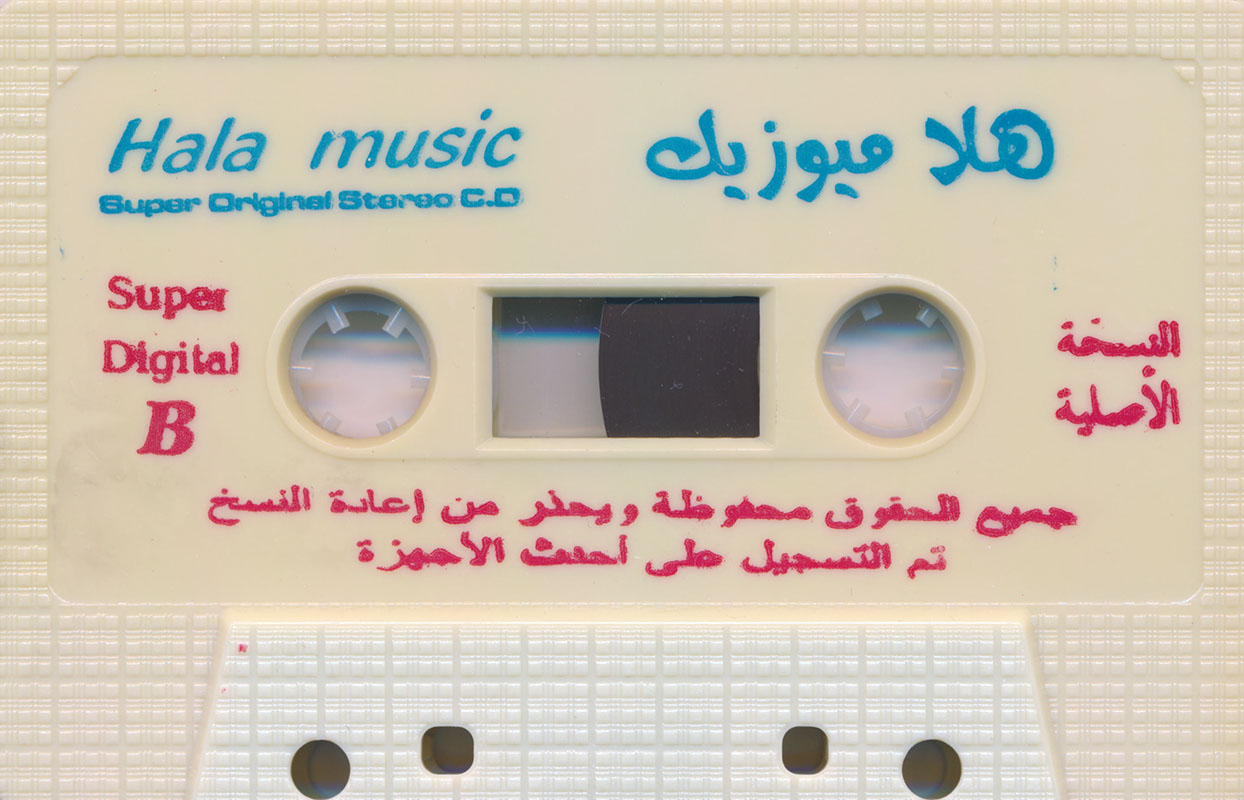


Various Artists
Shoakh Al Ahmad wa Mokhtatrat Iraqia (Poet Shoakh Al Ahmad and Iraqi Collections)
SIDE A
- Salah Albahr: Shlonkom (How Are You?)
- Haithem Yousef: Habibi ma Akder Ansak (Baby, I Can't Forget You)
- Basaim Al Ali: Shjaha Annas (People Felt Sorry for Her)
- Kazem Assaher: Mo Dehketak (This Is Not Your Smile)
SIDE B
- Hatem Al Iraqi: Ahbokoum (I Love You)
- Habib Ali: Ani Anthet (I'm Done)
- Mohamad Mihseen: Ysoeha Albakhet (Destiny Will Make It)
- Majid Al Mohandes: Ma Nesset (I Didn't Forget)
- Mohamad Abd Aljabaar: Tanetkom
Label
ART Studio
Hala Music
Location Issued
Aleppo, Syria
Artist Origin
Iraq
Syria
Credits
Johnny Ibrahim: Sound engineeringImad Ibrahim: KeyboardsAli Shaker: SazRecorded in ART Studios in collaboration with Shoakh Al Ahmad records, Ramon Records, and Mahmoud Abosh Records.Arrangements by Gergis records. Special thanks to Al-Hafez institution for production and distribution.
More Info
At the beginning of the 2000s, this type of compilation tape of random songs and interludes of romantic poems with soft music in the background spread widely. Since the mid-1990s, tapes of Shawakh al-Ahmad reciting colloquial poetry in the Chawi dialect, recorded alongside Iraqi songs, gained increasing popularity in northern Syria. Shawakh became more widely known after writing the lyrics for what became a hit song by singer Saria Al-Sawas in 2010. After 2011, Shawakh Al-Ahmad moved to live in Turkey and stopped issuing his audio-recorded poems for more than eight years, only to return later with new poems on YouTube. His topics now included alienation, suffering, displacement, and nostalgia, and they were greatly welcomed by the same audience who listened to his poems via cassette tapes.